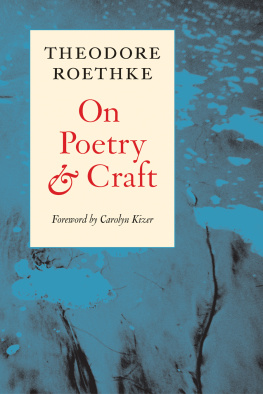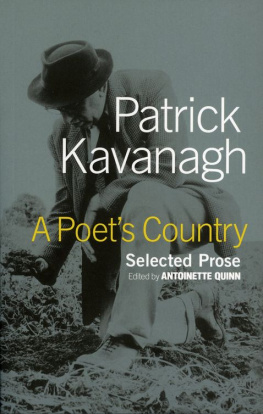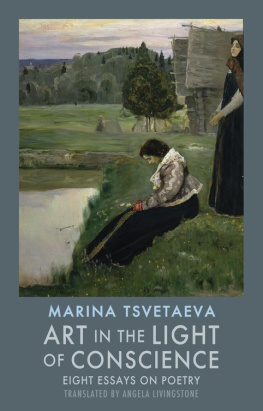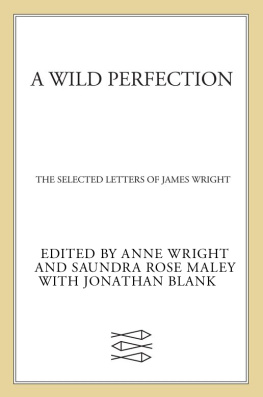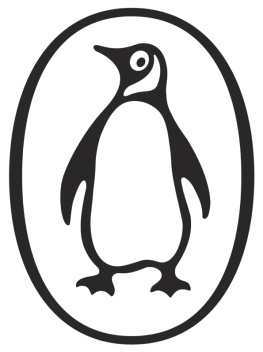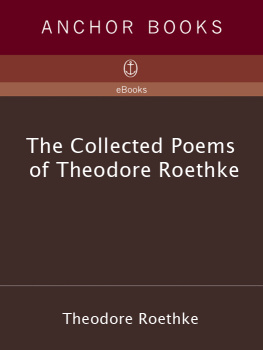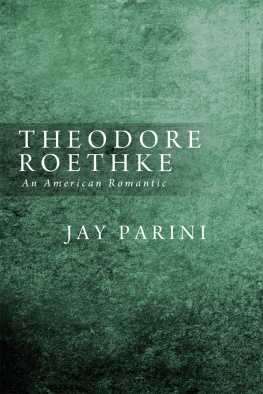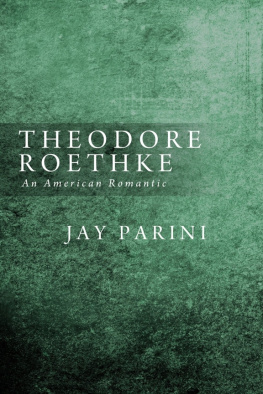Copper Canyon Press encourages you to calibrate your settings by using the line of characters below, which optimizes the line length and character size:
Please take the time to adjust the size of the text on your viewer so that the line of characters above appears on one line, if possible.
When this text appears on one line on your device, the resulting settings will most accurately reproduce the layout of the text on the page and the line length intended by the author. Viewing the title at a higher than optimal text size or on a device too small to accommodate the lines in the text will cause the reading experience to be altered considerably; single lines of some poems will be displayed as multiple lines of text. If this occurs, the turn of the line will be marked with a shallow indent.
Thank you. We hope you enjoy these poems.
Foreword
BACK IN THE SEVENTIES when I was teaching at Chapel Hill, this outfit in Florida had the brilliant idea of tape recording people who had studied with distinguished poet-teachers. They asked me if I would talk about Roethke, and I said yes. They sent me big reels of tape; they had acquired a studio in Raleigh, and theyd gone to all manner of trouble to set this up; but the more I thought about it the more frozen I got. Time went on and I hadnt done anything; I started getting anxious phone calls from Florida, and finally they said, Ms. Kizer, are you gonna do this or arent you? And I said, Well, you know, its too raw; its too fresh in my mind, his death, and I havent been able to handle it yet. There was a silence, and the guy at the other end of the phone said, Do you realize that Theodore Roethke has been dead for thirteen years? And I said, No. No, I dont. And this is one of the first times Ive really tried to talk about Ted and what his teaching methods were like. I may say that, when I go back and look at my notebooks from those days in his class 5556 (and whenever I could get a chance to sit in after that), Im amazed that my own teaching methods are such a duplicate of his. Im fascinated by the fact that I really havent thought up anything much on my own. Ive simply carried on as the master taught me.
That first class in 55 was an extraordinary class; in it were James Wright, Jack Gilbert, and a man whos now a distinguished German scholar and head of his university department, named Helmut Bonheim. There was also a seventy-year-old rabbi, a man even older than that who was a retired sea captain whod just lost his wife and was beside himself with boredom and pain, and people of eighteen. It was the whole spectrum. Ted always insisted on having a class that was open to the public. You didnt have to have any credentials to be in it, you just went and talked to him and he decided whether or not you should be in the class. And so you had a wonderful mix of all kinds of people of all ages, from kids to grandparents.
One of the very striking things about Roethke was his attitude toward these old men in the class. He could be a real brute, particularly when drinking. He was the original male chauvinist pig. But with the rabbi and with the sea captain, he was charmingly deferential because he said that they knew things the rest of us didnt know. They knew what life was like and they had a subject. And both these menthe sea captain in particularcontributed a good deal to the class.
When Jim Wright came to class, we knew at once he was our genius, to quote a poem of mine. Jim came from Kenyon College; he was writing brilliantly, and was well at work on his first book, St. Judas. Jack and I were not that far along and I probably doubted if we ever would be. But there was an atmosphere in that classroom that was unlike anything Ive ever come across. Whenever I get a chance to have an open class like that I do it, because it is an invaluable experience to have a cross section of people by age and occupation and even by talent. Experience has its own contribution to make, and Ted was always very conscious of that.
The great thing about Ted was that he knew how to make a good poem out of a bad poem. I like to think that he taught me to do this too. Im not interested in that sort of perfect Iowa Workshop poem, in which everything eccentric or outrageous has been ironed out: one of those neat little poems that is disposable like Kleenex: you read it once (though you may not finish it) and think, Very nice, and then you never think about it again. But I can take a great, big, messy, ambitious, poem and find its form, and help to shape it up. Ted said many useful things about that kind of poem. One of them was to think of a poem as a three-act play, where you move from one impulse to the next, and then there is a final breath, which is the summation of the action of the whole. He had picked up that wonderful phrase from Sir John Davies which he used in a poem: She taught me turn, and counter-turn, and stand. Which is the essence of dramatic structure. Its what a long poem has to do. It doesnt require physical action, but there has to be some mental or emotional action that carries through in the poem.
Roethke was an extraordinarily rigorous critic, and if you couldnt take it, you didnt learn much. For example, he said the real test was that every line of a poem should be a poem. Thats about as tough as you can get. I apply that to my own work and sometimes just throw up my hands. But I find its extremely useful in getting rid of connectives, passive constructions, surplus adjectives, and words that dont have any particular energy in them.
He was a fanatic about active verbs. He used to give us lists of verbs from seventeenth-century poets, particularly Vaughn, and say, How many of these can you incorporate in a poem? He intensely disliked participles. I remember that one time, as I was sedulously following him, I made my speech to a class about passive constructions and a smart student said, What about To be or not to be? I said, Well, that explains Hamlets nature: his ambivalence, his uncertaintyhis basic passivity, and I got out of that one! In another class somebody said, What about Turning and turning in the widening gyre? (Ive had some smartand smart-assstudents!) I replied, When you can write as well as Yeats, you wont need to be in this class. But in general those are good practices.
Another thing Ted used to do which I often do with students was tell them, Take out all the adjectives and see what youve got left. See which ones are absolutely essential to the poem. Its amazing how poems are improved. Sometimes when theyre pared down like that, they speak wonderfully to you. This again was part of his obsession and fascination with the seventeenth century. People like Herbert and Donne and Vaughn use very few adjectives. The whole strength of the poem rests on the verb. The verb is the great armature around which the language of the poem is wrapped, as Ive said many times.
Sometimes Roethke would say sort of arbitrarily, Cut a line out of each stanza, if he felt the poem was a little flaccid, a little loose. So youd have to conflate two or three lines to make this work. Most times even when we didnt think it would work, it did. Ted would also ruthlessly cut stanzas that he thought were not on the main track of the poem. The first poem I had that was widely anthologized was a poem about the death of my mother called The Great Blue Heron. Ted took two stanzas out of it. It was because I trusted him so much that I agreed to do this although I felt like an amputee. Within two months I couldnt even remember what was missing. He pointed out something to me that I have noticed all my life since, and that is when you take out a big hunk of a poem, the part that comes before and the part that comes after the cut just seal up, including the rhymes, as if you had discovered the poems true form, the form the poem had been trying to make you understand all the time.

